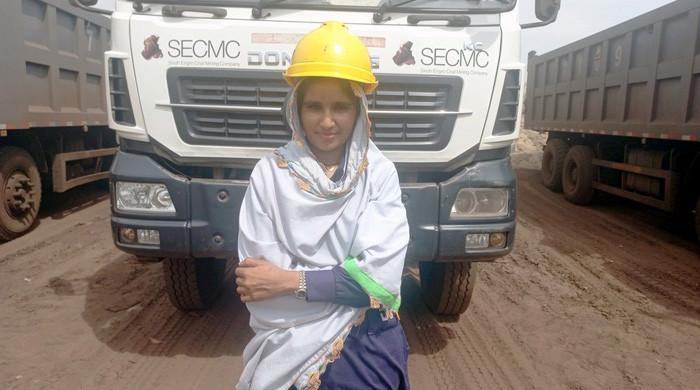CPEC’s Impact: Women Driving Pakistan’s Economic Transformation
The China-Pakistan Economic Corridor (CPEC), a large-scale project known for its infrastructure development of ports, roads, and power generation facilities, is spearheading a notable change in Pakistan. It is empowering women to become significant contributors to the nation’s economic progress.
As CPEC advances into its subsequent stages, a considerable number of women nationwide, having received training through CPEC-related programs, are assuming prominent roles. These women are reshaping various sectors and striving to ensure a more equitable distribution of the advantages derived from this development.
Breaking Barriers in Sindh
In Sindh’s Tharparkar district, women are overcoming conventional obstacles through CPEC initiatives. The Thar Block II Project, overseen by the Sindh Engro Coal Mining Company (SECMC), has provided training to approximately 70 women to become heavy dump truck operators.
This is a groundbreaking achievement for this traditionally conservative and disadvantaged region, as it challenges established gender roles and creates new job prospects in a field historically dominated by men.
Empowerment in Balochistan
Similar narratives of empowerment are emerging from Gwadar, a coastal city in Balochistan. At a garment manufacturing center within the Gwadar Port Free Zone, over 20 women have been trained in apparel production.
This project, backed by the China Overseas Ports Holding Company (COPHC) and the Chinese Consulate, offers stipends to women as they manufacture uniforms for port personnel.
A Shift in Focus
Umair Pervez Khan, Secretary of the Consortium of Asia Pacific Studies (CAPS), noted that CPEC is transitioning from a primarily infrastructure-centered approach to a more people-focused model of sustainable and inclusive growth.
“CPEC encompasses more than just roadways and commerce,” he stated. “It serves as a platform for opportunity, with women playing a crucial role in this evolution.”
According to Pervez Khan, the second phase of CPEC is dedicated to promoting sustainable development, special economic zones (SEZs), skills training, and community empowerment.
“We are observing the beginnings of a societal transformation. Women who previously lacked access to education or employment are now actively contributing to their local economies through their skills and dedication,” he observed.
As SEZs become operational across various provinces, policymakers and development partners are collaborating to integrate women into industries like manufacturing, logistics, and operations, which have traditionally been male-dominated.
Pervez Khan underscored that the sustained success of CPEC relies on the involvement of women at every level of economic activity, particularly within SEZs such as Rashakai and Dhabeji.
“The only path forward is to integrate inclusion into the very foundation of our economic zones, ensuring that women are an integral part of the system from its inception,” he asserted.
He also emphasized the necessity of incorporating vocational training centers, childcare facilities, and women-friendly work environments as standard features in all SEZs, to bolster women’s participation and retention in the workforce.
Reshaping Social Norms
Beyond income generation, CPEC is also influencing changes in societal attitudes. In areas where women’s freedom of movement and public visibility were once severely limited, local success stories are motivating communities and establishing new avenues for young women to secure employment.
“These initial accomplishments require reinforcement through awareness campaigns and local collaborations,” Umair Khan explained. “When one woman takes a step forward, it inspires others. This ripple effect can only endure through ongoing community involvement and recognition.”
Khan believes that Pakistan can serve as a regional exemplar through CPEC by championing gender-inclusive development.
“By adopting inclusive policies, Pakistan can harness infrastructure and trade not only to boost GDP but also to improve the lives of its citizens,” he remarked.
Tangible Progress
Throughout the country, tangible advancements are already apparent. In Sindh, 70 women have been trained as dump truck operators in Tharparkar, while an additional 21 are engaged in solar panel maintenance.
In Balochistan, more than 20 women are employed and receiving training at the Gwadar Women Garment Factory. In Punjab, increased access to energy in SEZs has stimulated female employment in the textile industry.
In Khyber Pakhtunkhwa, enhanced transportation networks have created access to urban employment and training opportunities for women. Furthermore, 191 female law enforcement officers have joined Sindh’s CPEC security force.
As the partnership between Pakistan and China progresses under the Belt and Road Initiative, this multibillion-dollar corridor is linking Pakistan to global markets while stimulating regional economic expansion.
With a renewed emphasis on sustainability and inclusivity, CPEC is empowering women in remote regions by providing them with skills and opportunities, thus enabling them to make significant contributions to both the national and global economies. Their involvement is no longer secondary but is, in fact, essential for achieving enduring progress.



Comments (0)
No comments yet. Be the first to comment!
Leave a Comment